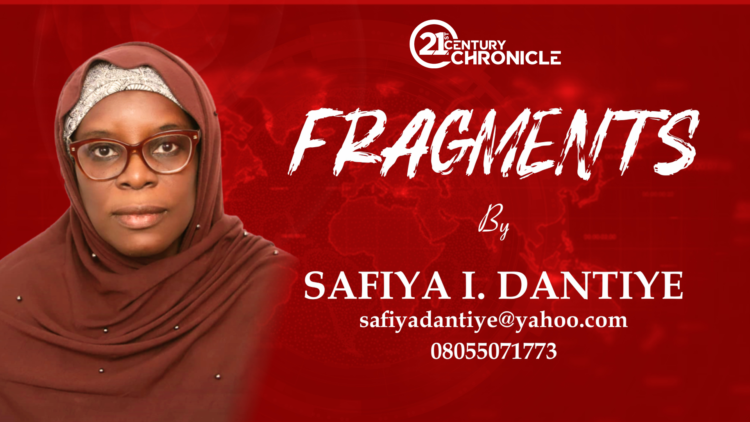As Nigeria celebrated Children’s Day yesterday as it does on May 27 of every year my heart goes to the physically challenged children who may not be taken into reckoning in the celebration.
There are always talks of nurturing children as the leaders of tomorrow by providing them with good education, healthcare, food and so on, however many children of yesterday have complained that they have not been given a chance to become ‘leaders’, more than forty or fifty years since they were said to be leaders of tomorrow!
Though they don’t need to be in government to become leaders in other places, but apparently they want to become presidents and governors, which is not possible for all of them.
For years young people have graduated from universities and other institutions of higher learning, but the jobs they expected are no more there which paints a bleak future for them, though the mindset is changing towards entrepreneurship, that you cannot all get government’s job.
Enabling environment, infrastructure and security are some of the key issues that would help those going into their own business as well which are lacking.
So what does the future holds for the physically challenged child in Nigeria where the normal child also struggles for that future? My use of ‘normal’ here is for want of a better word, meaning the child that doesn’t have any physical or mental impairment, but certainly not as derogatory to those special children.
One day I went to one school of special children where they held an activity. A woman who has a five-year- old child in the school said, “I pity these children, even those that are normal they can’t get jobs these days that is why we are trying to develop my son’s musical talent.”
I also heard somebody said, “The boys have a better chance in future than the girls.”
“But with training we want them to be able to support themselves when the parents are no more,” another person said.
Those in schools are even among the luckiest; many of such children are cast aside, hidden at homes or left to roam the community where people take them as objects of amusement.
Some are made to become beggars, believing it is the only thing they can do in life, which of course is not true, but they may not know.
People need enlightenment, though the special schools and teachers need to be there too to be able to accommodate them.
This is because some parents bring their children to such schools in Abuja because there are not in their states and where there are, they are not as good.
These schools should be well equipped and the teachers well paid, because apart from the teaching it requires an enormous amount of love and patience to teach such children. In fact some parents find it very hard to tolerate their own children, but the teachers do.
The society needs to do more to show love to these children, make them happy, and make them feel that they are not different from anybody. That they are that way does not make them any less human being.
But the change must start from home. For instance we have the insensitive culture of naming people with their disability, where the blind man named Malam would be automatically called
‘Malam makaho’.
The deaf is ‘kurma’ or ‘Dankurma’, the cripple is ‘Gurgu’ or ‘Dangurgu’, and the dumb is ‘Bebe’, and they accept the derogatory, demeaning and defeating labels because they grew up with them.
So the moment the parents don’t call them those names and stop anybody from calling them as well as teach them to fight back and don’t allow other children to taunt them and call them those names it will give them courage and makes them happy that they are like normal children too.
Besides, these children need special care. Somebody said caring for her daughter is 24hrs, so they are vulnerable to abuse and molestation from nannies, care givers and relatives, underscoring why they need support even only in proving schools for them.
Thereafter, the Day is beyond celebration, it is a reminder of the challenges children face, the physically challenged among them, the efforts, failings and the way forward. All children are special, but the special children are SPECIAL.









